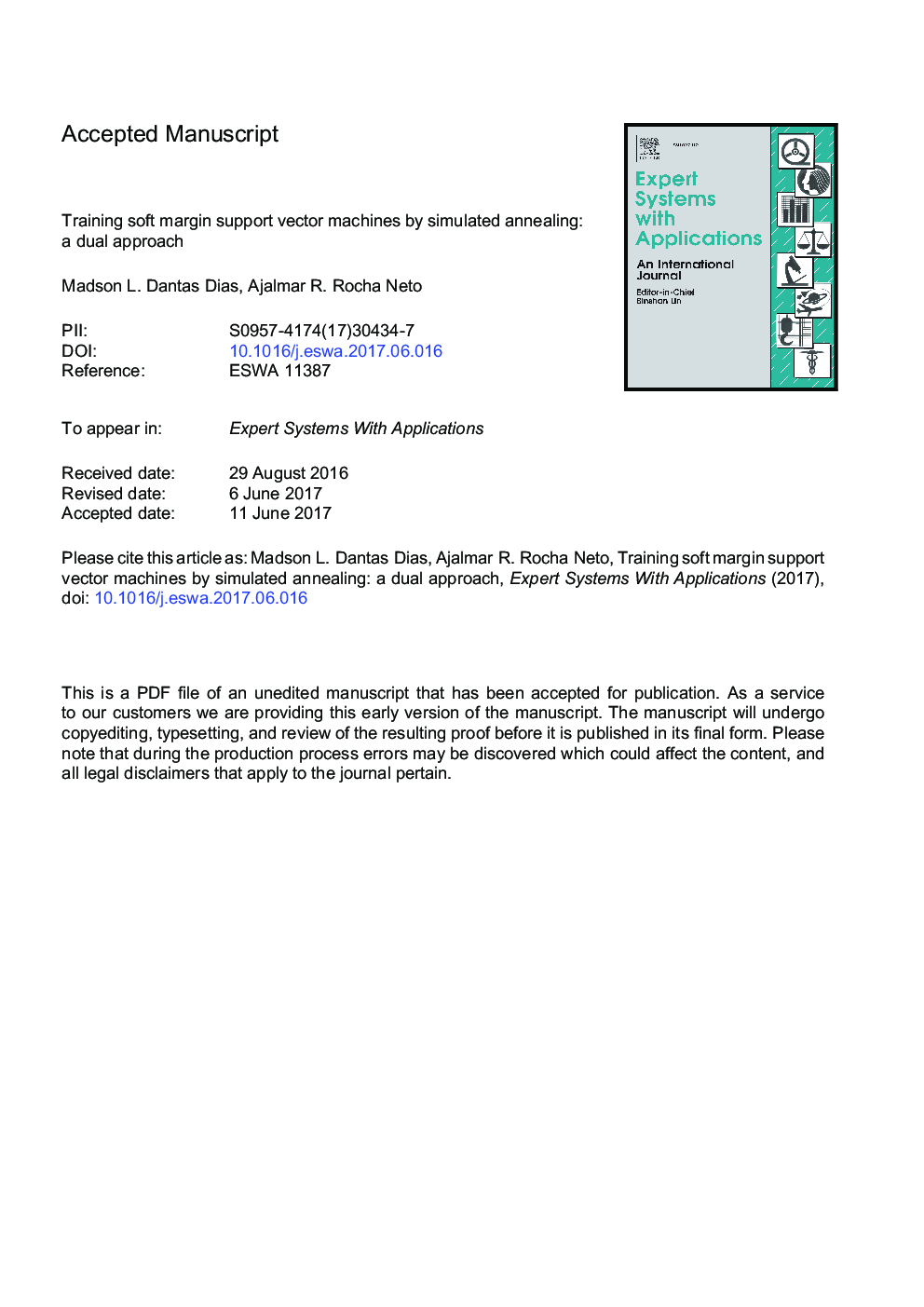| Article ID | Journal | Published Year | Pages | File Type |
|---|---|---|---|---|
| 4943048 | Expert Systems with Applications | 2017 | 33 Pages |
Abstract
A theoretical advantage of support vector machines (SVM) is the empirical and structural risk minimization which balances the complexity of the model against its success at fitting the training data. Metaheuristics have mostly been used with support vector machines to either tune hyperparameters or to perform feature selection. In this paper, we present a new approach to obtain sparse support vector machines (SVM) based on simulated annealing (SA), named SATE. In our proposal, SA was used to solve the quadratic optimization problem that emerges from support vector machines rather than tune the hyperparameters. We have compared our proposal with sequential minimal optimization (SMO), kernel adatron (KA), a usual QP solver, as well as with recent Particle Swarm Optimization (PSO) and Genetic Algorithms(GA)-based versions. Generally speaking, one can infer that the SATE is equivalent to SMO in terms of accuracy and mean of support vectors and sparser than KA, QP, LPSO, and GA. SATE also has higher accuracies than the GA and PSO-based versions. Moreover, SATE successfully embedded the SVM constraints and provides a competitive classifier while maintaining its simplicity and high sparseness in the solution.
Related Topics
Physical Sciences and Engineering
Computer Science
Artificial Intelligence
Authors
Madson L. Dantas Dias, Ajalmar R. Rocha Neto,
